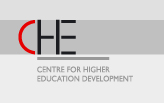
Finally the decision on who has won the European Commission’s million euro tender – to develop and test a global ranking of universities – has been announced.
The successful bid – the CHERPA network (or the Consortium for Higher Education and Research Performance Assessment), is charged with developing a ranking system to overcome what is regarded by the European Commission as the limitations of the Shanghai Jiao Tong and the QS-Times Higher Education schemes. The final product is to be launched in 2011.
CHERPA is comprised of a consortium of leading institutions in the field within Europe; all have been developing and offering rather different approaches to ranking over the past few years (see our earlier stories here, here and here for some of the potential contenders):
- CHE – Centre for Higher Education Development (Gütersloh, Germany)
- Center for Higher Education Policy Studies (CHEPS) at the University of Twente (Netherlands)
- Centre for Science and Technology Studies (CWTS) at Leiden University (Netherlands)
- Research division INCENTIM at the Catholic University of Leuven (Belgium)
- Observatoire des Sciences et des Techniques (OST) in Paris
- European Federation of National Engineering Associations (FEANI)
- European Foundation for Management Development (EFMD)
Will this new European Commission driven initiative set the proverbial European cat amongst the Transatlantic alliance pigeons? 
As we have noted in earlier commentary on university rankings, the different approaches tip the rankings playing field in the direction of different interests. Much to the chagrin of the continental Europeans, the high status US universities do well on the Shanghai Jiao Tong University Ranking, whilst Britain’s QS-Times Higher Education tends to see UK universities feature more prominently.
CHERPA will develop a design that follows the so called ‘Berlin Principles on the ranking of higher education institutions‘. These principles stress the need to take into account the linguistic, cultural and historical contexts of the educational systems into account [this fact is something of an irony for those watchers following UK higher education developments last week following a Cabinet reshuffle – where reference to ‘universities’ in the departmental name was dropped. The two year old Department for Innovation, Universities and Skills has now been abandoned in favor of a mega-Department for Business, Innovation and Skills! (read more here)].
According to one of the Consortium members website – CHE:
The basic approach underlying the project is to compare only institutions which are similar and comparable in terms of their missions and structures. Therefore the project is closely linked to the idea of a European classification (“mapping”) of higher education institutions developed by CHEPS. The feasibility study will include focused rankings on particular aspects of higher education at the institutional level (e.g., internationalization and regional engagement) on the one hand, and two field-based rankings for business and engineering programmes on the other hand.
The field-based rankings will each focus on a particular type of institution and will develop and test a set of indicators appropriate to these institutions. The rankings will be multi-dimensional and will – like the CHE ranking – use a grouping approach rather than simplistic league tables. In contrast to existing global rankings, the design will compare not only the research performance of institutions but will include teaching & learning as well as other aspects of university performance.
The different rankings will be targeted at different stakeholders: They will support decision-making in universities and especially better informed study decisions by students. Rankings that create transparency for prospective students should promote access to higher education.
The University World News, in their report out today on the announcement, notes:
Testing will take place next year and must include a representative sample of at least 150 institutions with different missions in and outside Europe. At least six institutions should be drawn from the six large EU member states, one to three from the other 21, plus 25 institutions in North America, 25 in Asia and three in Australia.
There are multiple logics and politics at play here. On the one hand, a European ranking system may well give the European Commission more HE governance capacity across Europe, strengthening its steering over national systems in areas like ‘internationalization’ and ‘regional engagement’ – two key areas that have been identified for work to be undertaken by CHERPA.
On the other hand, this new European ranking system — when realized — might also appeal to countries in Latin America, Africa and Asia who currently do not feature in any significant way in the two dominant systems. Like the Bologna Process, the CHERPA ranking system might well find itself generating ‘echoes’ around the globe.
Or, will regions around the world prefer to develop and promote their own niche ranking systems, elements of which were evident in the QS.com Asia ranking that was recently launched. Whatever the outcome, as we have observed before, there is a thickening industry with profits to be had on this aspect of the emerging global higher education landscape.
Susan Robertson
Pingback: An alternative global ranking of universities? « Registrarism
Pingback: Bibliometrics, global rankings, and transparency « GlobalHigherEd
Pingback: Collector 2010 des classements d’universités… et demain ? « Miellées d'une butineuse